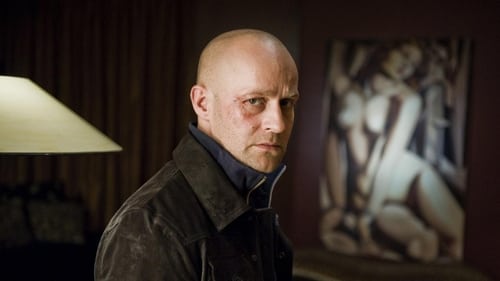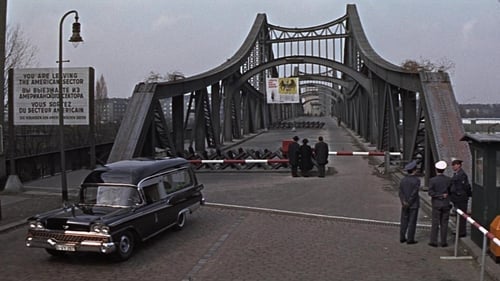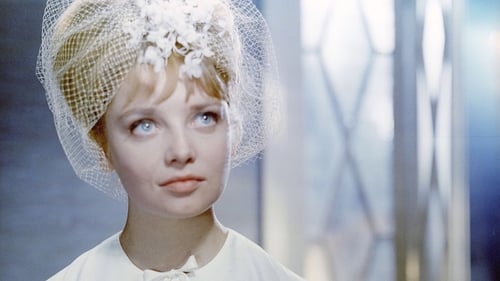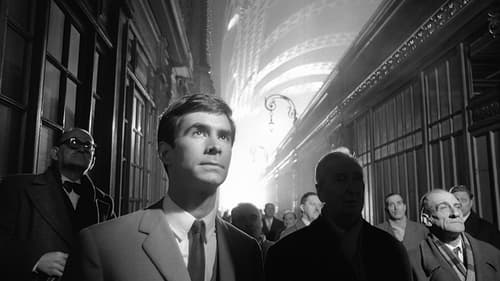
Kaufmann von Venedig Antonio

Hans Ganz
After the partner of a policeman is killed he is drawn into a mysterious plot of conspiracy and terrorists.

Ana Luisa tiene padres ricos, a los que el tiempo siempre les alcanza para sus múltiples compromisos sociales, pero no para ella. Antón es de familia muy pobre, y todas las tardes trabaja en una pequeña heladería sustituyendo a su madre enferma. A pesar de tales diferencias sociales, los dos son muy amigos.
En la reprise del homónimo libro infantil de Erich Kästner esta vez Ana Luisa no vende cerillas para ayudar a Antón a ganar dinero, sino que canta en el centro de Múnich, mientras sus padres están en la ópera. Esas canciones Ana Luisa las ha aprendido de Laurence, su chica au-pair francesa, con quien sus padres, eternamente ausentes, la dejan tranquilos. Cuando Carlos, el taimado amigo de Laurence, intenta robar en la casa de Ana Luisa, felizmente están allí presentes de nuevo Antón y el ama de llaves, la gorda Berta, con una grandiosa idea…

1. Offizier
Chancellor Helmut Kohl is to blame in Germany and has to go away without violence. The homeless Hick takes up the idea and demonstrates the abolition of Kohl.

This German political drama from iconoclastic filmmaker Herbert Achternbusch takes a slightly askew look at neo-Nazis and the Holocaust. His non-story (a typical trait of Achternbusch films) is divided into three parts. The first introduces Hades, an eccentric half-Jewish coffin maker. Also introduced are the women in his life. The second part depicts different scenes from the city's Jewish ghetto. Included are disturbing film clips from Nazi propaganda footage that shows the naked corpses of starved Jews piled up in the streets with the insinuation that the heartless relatives of the dead would unceremoniously toss them out when they expired. In the third part, Hades is buried at sea. In between, neo-Nazis march unopposed in Munich, Hades battles skinheads, and Hades' shop is repeatedly vandalized. A scene where Hades is fascinated with death is also seen.

Cornelius
Schtonk! is a farce of the actual events of 1983, when Germany's Stern magazine published, with great fanfare, 60 volumes of the alleged diaries of Adolf Hitler – which two weeks later turned out to be entirely fake. Fritz Knobel (based on real-life forger Konrad Kujau) supports himself by faking and selling Nazi memorabilia. When Knobel writes and sells a volume of Hitler's (nonexistent) diaries, he thinks it's just another job. When sleazy journalist Hermann Willié learns of the diaries, however, he quickly realizes their potential value... and Knobel is quickly in over his head. As the pressure builds and Knobel is forced to deliver more and more volumes of the fake diaries, he finds himself acting increasingly like the man whose life he is rewriting. The film is a romping and hilarious satire, poking fun not only at the events and characters involved in the hoax (who are only thinly disguised in the film), but at the discomfort Germany has with its difficult past.

Graf von Gloucester

Dr. Franz Flaucher
For fans of history, this glimpse of Munich society in the 1920s will be a much-treasured event. The story revolves around an art-gallery manager who puts on a show featuring the scandalous works of a woman artist who committed suicide. He is unjustly accused of having committed adultery with her, and for some reason the authorities decide to make an example of him. He is imprisoned at about the same time that Hitler and the nascent Nazi party attempt the infamous Beer Hall Putsch, and the gallery manager's girlfriend and a Swiss writer valiantly (and unsuccessfully) attempt to get better justice for him. Nobody in authority, it seems, has the courage to take up the challenge of righting this particular injustice.

Wallenstein

Pasha Selim
Production of Mozart's opera about the Spanish nobleman who seeks to rescue his beloved Konstanze from the hands of the Pasha.
Karl Bohm conducts the Chorus and Orchestra of the Bayerischen Staatsoper with the right balance of serious purpose and light lilting lyricism. This production, staged by August Everding with set and costume design by Max Bignens, was filmed from a live television production relayed on the First Programme (Channel 1) of German television on 25 April 1980,

Sesamoff

Laan van Dorpe

Comenius

Faust (archive footage)

Clavigo

Generalmajor von Scharnhorst

Martin Luther
Época Medieval. Kohlhaas comercia con caballos. Al ir a la feria local para vender sus caballos, se ve obligado por un noble a que le deje parte de la mercancía como medio de pago para viajar por su territorio, con la promesa de devolverlo cuando la feria se haya terminado. Cuando regresa, los caballos están casi muertos, y el hombre no responde, por lo Kohlhass comienza a luchar infructuosamente contra la injusticia.

Reinhardt
El jefe del servicio de espionaje soviético, el coronel Stock, proyecta huir a Occidente. Harry Palmer, un hombre que ejerce de espía a la fuerza tras haber sido atrapado en un sucio asunto, es enviado a Berlín para ayudar a Stock, pero para ello tendrá que cambiar de identidad.

himself (uncredited)
The student rowing team of the Moscow Aviation Institute (MAI) was defeated in the competition. The coach drops the team and leaves, taking the best rowers with him. The remaining athletes decide to assemble a new team, and the management of the institute appoints a new coach for them — a teacher of hydrodynamics.

Orestis

Teulier

Ödipus

Sigismund - sein Sohn

Bert the Law Student
Un hombre se despierta por la mañana, y se encuentra con que la policía ha entrado en su habitación y lo arresta, tras acusarlo de haber cometido un crimen.

Gabriel Schilling

General Prinz Friedrich Arthur von Homburg

Richard Sorge

Wachtmeister Hirschfeld

Sergeant Charly Brown









